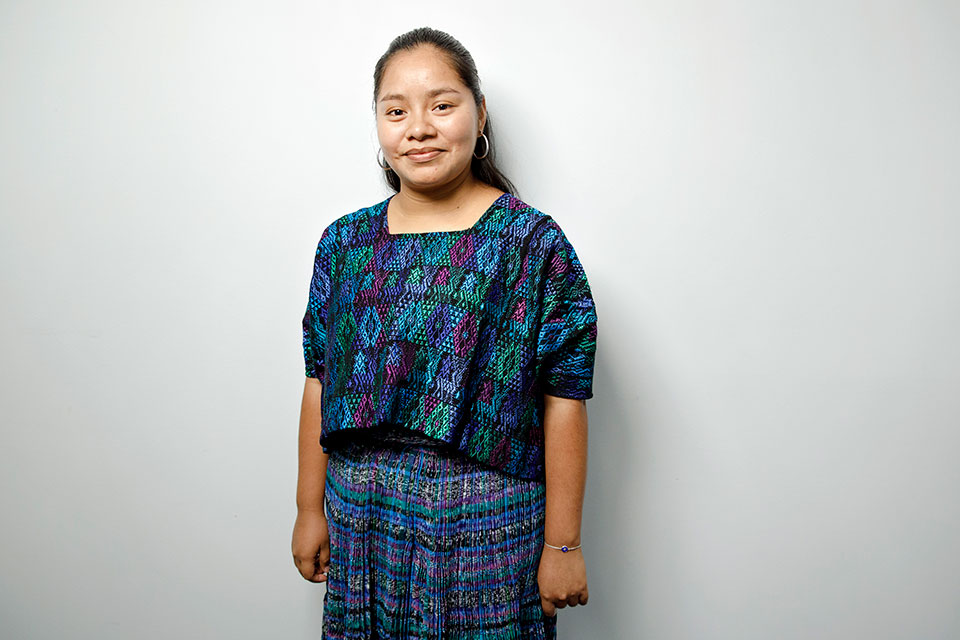In the words of Claudia Macz Chen: “I know the challenges for indigenous girls, I've had to overcome them myself”
Date:

As a mentor, Claudia Macz Chen, 25, works with girls to encourage their empowerment, self-esteem and continued education in rural and indigenous communities in Guatemala. She attended her first training with the Population Council in the Chisec Municipality when she was 17 and has since honed her leadership and advocacy skills. With UN Women’s support, she participated in the National Women’s Forum, having received training on the monitoring of the Guatemalan Peace Accords.
I enjoy working with girls, because I know what it’s like to be them. I faced the same struggles as them. I've seen violence in my family. I know the challenges for indigenous girls, I've had to overcome them myself. I had to learn to empower myself. When I work with young women, I can say, ‘I have done it, so you can do it. Let's all do it’.
And really, there are three major challenges facing young indigenous girls. There is violence, in their homes, there’s sexual violence in the communities. Then there’s the challenge of education—there are 168 communities and only 25 high schools, so there aren’t as many opportunities. And many of us have to start working at a young age, so we only have time to study on weekends.
Then there is taboo and lack of information related to sexual health and reproductive rights. When I meet with the girls, we meet in a safe space where we can be open and honest. I want to teach them about their rights and options. It’s so important for girls to learn. With this knowledge they can make a plan for their life. They can plan when they want to have kids and do everything else.
My mother didn’t know [about sexual and reproductive health and rights]. I went to my first Population Council training when I was 17 and we talked about reproductive health. I came home and told my mother what I’d learned. I told her I don’t want to get pregnant; I’m going to use some method to prevent that. She got very upset and told me not to use anything like that. She said she’d be watching. She was 40, a mother and a grandmother, and was shocked at what I had learned.
Today, my mother is 49 and she has 10 children and 10 grandchildren. Now she’s more understanding, she tells my sisters who already have children to make a plan, to think about how the children might suffer if there are so many children in the family. She wants better for her children and grandchildren.
I want the girls and young women I work with to empower themselves to make their own choices. I want them to participate and lead in their communities and nationally and internationally.
Indigenous women are the majority in our own territories. Women make up 52 per cent of the population nation-wide. And only by participating can we put to practice our knowledge. We're the only ones who know our experiences, and the only way to have any impact is by using that knowledge to participate in decision-making and leadership.”